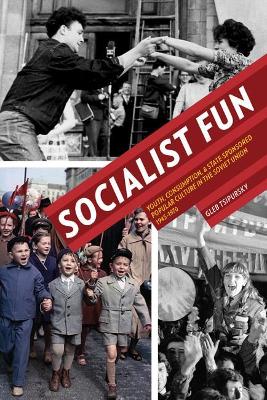Pitt Series in Russian and East European Studies
1 total work
Most narratives depict Soviet Cold War cultural activities and youth groups as drab and dreary, militant and politicized. In this study Gleb Tsipursky challenges these stereotypes in a revealing portrayal of Soviet youth and state-sponsored popular culture. The primary local venues for Soviet culture were the tens of thousands of klubs where young people found entertainment, leisure, social life, and romance. Here sports, dance, film, theater, music, lectures, and political meetings became vehicles to disseminate a socialist version of modernity. The Soviet way of life was dutifully presented and perceived as the most progressive and advanced, in an attempt to stave off Western influences. In effect, socialist fun became very serious business. As Tsipursky shows, however, Western culture did infiltrate these activities, particularly at local levels, where participants and organizers deceptively cloaked their offerings to appeal to their own audiences. Thus, Soviet modernity evolved as a complex and multivalent ideological device. Tsipursky provides a fresh and original examination of the Kremlin's paramount effort to shape young lives, consumption, popular culture, and to build an emotional community-all against the backdrop of Cold War struggles to win hearts and minds both at home and abroad.
